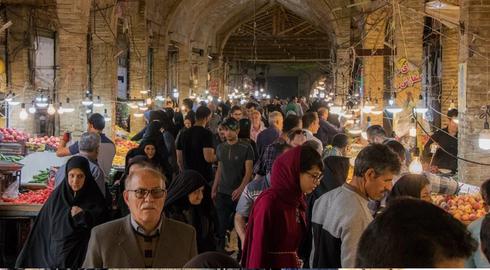Two days after Donald Trump's presidency came to an end, Supreme Leader Ayatollah Ali Khamenei threatened to avenge the assassination of Ghasem Soleimani, the commander of the Revolutionary Guards’ Quds force who was killed by US troops in January 2020. Not long after, Twitter suspended @Khamenei_site, the account he tweeted from, although the Leader's other Twitter accounts remained online.
"Revenge is inevitable," the tweet said. "Soleimani's killer and the one who ordered Soleimani's murder must pay. Although Soleimani's shoes are more honored than the head of his killer, they carried out an ill action and they must pay; those who ordered it and the killers who carried out the order should know that they will be made to pay.”
In line with international law, Twitter forbids its users from posting death threats or messages that incite violence on its platform. As a result, the account linked to Khamenei’s website was suspended on the same day. Khamenei did not repeat the threat on any of his other accounts, probably in the knowledge that the accounts could face suspension. His main account did, however, retweet the illegal content.
Despite Twitter being officially blocked in Iran and the Leader’s public expressions of dissatisfaction with the platform in 2009 — when many Iranians shared news about the protests and brutal crackdown that followed the disputed presidential election that year — Khamenei tweets on a regular basis.
The Charter of the United Nations prohibits threats to use force, except in specific cases regarding aggression by another country and if there is no immediate solution to resolve the conflict. Moreover, violent retaliation is illegal under international law, as is inciting violence. The charter sets out that only non-military retaliation should be pursued.
UN experts described the assassination of Ghasem Soleimani on the outskirts of Baghdad in 2020 as a "targeted killing”. The United States has claimed responsibility for the attack, which was carried out by the US military using drones. If the Islamic Republic had intended to take military action against the commander of the Quds Force, the branch of the Revolutionary Guards tasked with operations outside of Iran, it could have given an appropriate response at the same time to those it considered to be involved in the military operation.
Apart from violating the UN Charter, threatening to kill people instead of trying to prosecute them using the highest authority of the country in question, and in a situation where the two sides are not in a state of constant armed conflict, goes against the acceptable etiquette and decency that has come to be expected in international diplomacy. Of course, officials of the Islamic Republic do not hesitate to violate these codes of conduct.
To get an understanding of the gravity of Khamenei’s action, one must consider a situation where a US president would tweeted a death threat against an outgoing Iranian president.
The Supreme Leader’s action was illegal. But in addition, the Khamenei_site tweet used specific words to evoke memories of a sinister, deadly period in Iran’s history: the “chain murders” of the 1990s, when dozens of intellectuals and people who had criticized the regime were murdered by intelligence agents. Words including "those who ordered" and "killer" are words reminiscent of this series of brutal murders. The Leader chose to issue his threats when the Trump presidency was over and when the leader of the Islamic Republic is no longer worried about the danger posed by any possible reaction Trump might have.
visit the accountability section
In this section of Iran Wire, you can contact the officials and launch your campaign for various problems


























comments